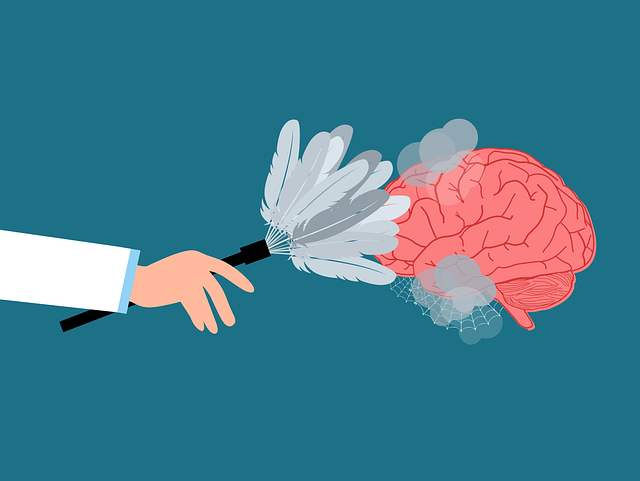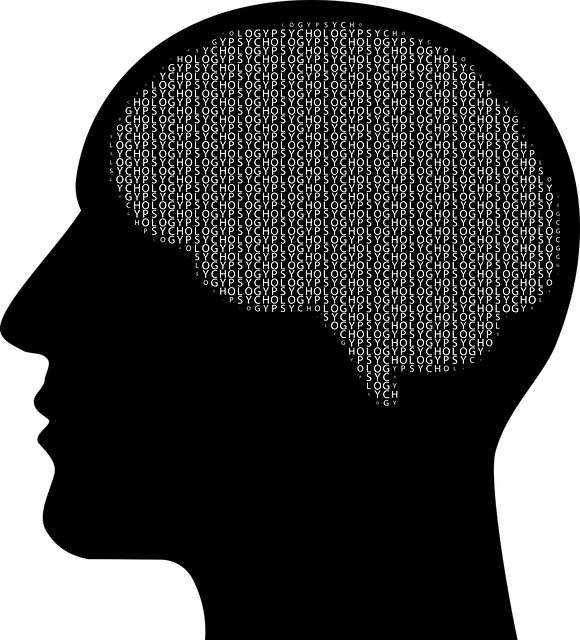In today's digital age, mental wellness apps are gaining popularity as accessible alternatives to traditional therapy, catering to diverse user needs. Littleton Hebrew Speaking Therapy (LHST) has pioneered innovative digital tools that integrate evidence-based practices into user-friendly interfaces, focusing on self-awareness exercises and resilience building. These apps offer personalized CBT therapy sessions, mood tracking, guided meditations, and cultural competency training for inclusive content. The development process involves market research, user interviews, wireframing, prototyping, internal testing, and pilot studies, ensuring intuitive navigation and aesthetics. In a competitive market, LHST stands out by offering unique features like diverse linguistic support and tailored resources for long-term user retention and positive referrals. Effective marketing strategies include social media engagement, influencer partnerships, and regular app updates.
In today’s fast-paced world, mental wellness apps have emerged as powerful tools for managing stress and anxiety. As organizations like Littleton Hebrew Speaking Therapy recognize the growing need for accessible therapy options, app development has become a game-changer. This article explores the significance of these digital solutions, delving into essential features, the development process, and marketing strategies to ensure user engagement. By understanding the unique requirements, we can create apps that foster mental well-being and revolutionize therapeutic outreach.
- Understanding the Need for Mental Wellness Apps
- Features and Functionality of Effective Apps
- Development Process: From Concept to Launch
- Marketing and User Engagement Strategies
Understanding the Need for Mental Wellness Apps

In today’s fast-paced world, mental wellness has become a paramount concern for individuals across various demographics. The demand for accessible and personalized solutions to support emotional health is on the rise, especially among those seeking alternative approaches to traditional therapy. This shift is evident in the growing popularity of mental wellness apps, which offer tailored interventions that cater to individual needs. For instance, Littleton Hebrew Speaking Therapy has recognized this need and developed innovative digital tools aimed at promoting inner strength development and resilience building through a variety of self-awareness exercises.
By integrating evidence-based practices into user-friendly interfaces, these apps provide a much-needed support system for individuals struggling with stress, anxiety, or other mental health challenges. They offer flexibility and discretion, allowing users to engage in self-care practices at their own pace and convenience. This accessibility is crucial, as it encourages individuals who might otherwise avoid traditional therapy to prioritize their mental wellness and develop coping mechanisms that enhance overall well-being.
Features and Functionality of Effective Apps

Effective mental wellness apps should offer a comprehensive suite of features designed to support users’ emotional and psychological well-being. Core functionalities include personalized therapy sessions that cater to individual needs, incorporating evidence-based practices such as cognitive behavioral therapy (CBT) techniques from experts like those at Littleton Hebrew Speaking Therapy. These apps often feature mood tracking tools, allowing users to monitor their emotions over time and identify patterns. Additionally, they should provide access to a library of guided meditations and mindfulness exercises to promote relaxation and stress reduction.
Beyond these basics, top-tier mental wellness coaching programs development focuses on enhancing user engagement through interactive features. Incorporating gamification elements, such as rewards for consistent use or challenges designed to encourage positive thinking, can foster a sense of accomplishment and motivate users to maintain their mental health practices. Moreover, integrating social components, like secure chat forums or peer support groups, enables users to connect with others facing similar challenges, fostering community and reducing feelings of isolation. Healthcare provider cultural competency training is also crucial in app development to ensure inclusive content that resonates with diverse user populations.
Development Process: From Concept to Launch

The development process for a mental wellness app begins with a deep understanding of the target audience’s needs and challenges. At this stage, conducting thorough market research and user interviews is key to identifying pain points and unmet demands in mental health support. For instance, some users might seek personalized therapy sessions, while others require tools for stress management or social skills training. Incorporating features like chat bots offering immediate emotional support or integrating game-like elements for practicing conflict resolution techniques can significantly enhance user engagement.
As the concept crystallizes, designers and developers collaborate to create wireframes and prototypes, ensuring an intuitive user interface and seamless navigation. This iterative phase allows for refining the app’s functionality and aesthetics based on feedback from internal testing and pilot studies. For a Littleton Hebrew Speaking Therapy app, this could involve incorporating cultural elements into therapeutic exercises and ensuring accessibility features cater to users’ diverse linguistic backgrounds. Once ready, the app undergoes rigorous testing and quality assurance checks before being launched onto app stores, making it accessible to a wider audience seeking improved mental health awareness and practical tools.
Marketing and User Engagement Strategies

In the competitive landscape of mental wellness apps, successful marketing and user engagement are key to standing out. One effective strategy is to highlight the unique features that set your app apart, such as incorporating Littleton Hebrew Speaking Therapy for diverse linguistic needs. This not only caters to a specific community but also emphasizes cultural sensitivity and inclusivity, attracting users who value personalized care. Leveraging social media platforms and influencer partnerships can help create buzz around your app, especially by featuring success stories and testimonials from satisfied users.
Additionally, integrating user-generated content through forums or communities within the app encourages interaction and fosters a sense of belonging. Promoting regular updates with new features, such as advanced conflict resolution techniques or enhanced mood management tools, keeps users engaged and coming back for more. Furthermore, offering tailored resources like trauma support services can cater to specific user needs, ensuring long-term retention and positive word-of-mouth referrals, just like Littleton Hebrew Speaking Therapy does within its specialized domain.
The development of mental wellness apps, such as those offered by Littleton Hebrew Speaking Therapy, is a growing trend in addressing the global need for accessible psychological support. By leveraging technology, these applications provide individuals with tools to monitor and improve their mental health. Through a comprehensive understanding of user needs, thoughtful design, and strategic marketing, developers can create effective solutions that enhance well-being and contribute to a healthier, more resilient society.










